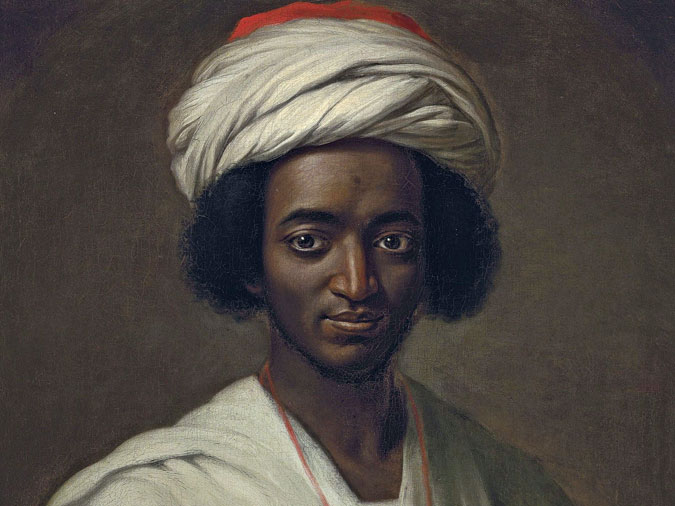
Ayyuba Suleiman Diallo
Known to his European acquaintances as Job Ben Solomon, Ayyuba Suleiman Diallo was born into a noble family of the Fula tribe in the Senegambia region. He was tutored by his father who was teacher to the king’s sons.
From the tutelage of his father and other prominent Islamic scholars, Suleiman became a ‘Hafiz’, a person who has memorized the entire Quran and assisted his father with imam duties. Before his capture, his father had helped establish the city of Bondu which was previously under the authority of a Mande King. The city of Bondu is home to Suleiman and also significant to the Fulani as it marks the first Fulani Jihad.
Suleiman was captured in 1731 while he was selling goods. He was sent to Annapolis in Maryland, an established port of entry during the Trans-Atlantic slave trade. While he was there, he still remained a devout Muslim. He secluded himself in the woods to pray but he was mocked and harassed by white children.
When he could be the treatment and labour on the plantation, he escaped. He was captured and jailed. During his time in jail, he met with the English minister and lawyer, Thomas Bluett who helped him secure his freedom. Thomas
Diallo wrote a letter to his father asking him for help to return home. The letter which was given to Bluett went through several hands before reaching James Orglethorp, who founded the colony of Georgia in 1732. Orglethorpe’s familiarity with West Africa enabled him to get the letter to Diallo’s father. He also took a special interest in Diallo due to his faith and so he paid for his passage to London and found him employment with the Royal African Company.
Suleiman remained a staunch Muslim, unwavering his faith. During and after his passage to London, the ship’s crew observed that he refused wine and also meat that was not slaughtered according to Islamic law. Noticing this, he was allowed to carry the task of slaughtering the animal so he could consume some. He maintained his five daily prayers while aboard the ship. Bluett related his Diallo’s 1734 biography that he wrote three copies of the Quran from memory.
After spending time in London and his unsuccessful trade venture with the Royal African company, he eventually returned to Bondu to find that his father had died and his wife had remarried. Due to the sad turn of events, he wrote to his British contacts to enquire about visiting London. His request was denied and the reason for it remains unclear. His correspondence with his British contacts continued until he died in 1773.









